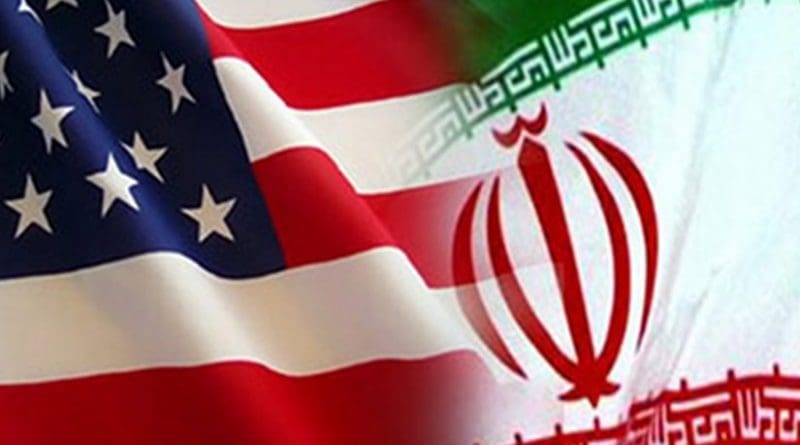Troubles Ahead For Iran Nuclear Deal – OpEd
From Tehran a dire warning: new US sanctions will mean we stop implementing the Iran nuclear deal. This warning, issued by Iran’s foreign minister Javad Zarif at a meeting in India, reflects Iran’s growing concern that the coming Trump administration is likely to take action against the Iran nuclear deal, known as the Joint Comprehensive Plan of Action (JCPOA).
Already, from Iran’s spiritual leader, ayatollah Khamenei, to president Rouhani to various members of the Iranian parliament, there is a loud objection to Obama’s signing into law a new Iran sanctions bill that extends the comprehensive sanctions for another 10 years, in direct violation of the terms of agreement under the JCPOA. The US’ justification is that due to the presidential waivers, these sanctions laws do not apply in whole and thus do not change the nature of US’s commitments and obligations under the JCPOA.
But, this is at best a lame excuse that, for one thing, overlooks that the UN Security Council Resolution 2231 (July 2015) stipulates the formal termination of all Iran sanctions 8 years after the “adoption day,” i.e., October, 2015. Considered alone, the new US bill to extend the sanctions, initially passed in 1996 under proliferation concerns, also violates the JCPOA’s terms, e.g., Annex V, which clearly mandates the parties to adhere to the timeline of the agreement.
The big question is, of course, what happens when Obama leaves office on January 21, 2017 and all his executive orders allowing those Iran waivers expire on the same day? Either Trump will renew those important waivers through new executive orders or he will not, in which case the sanctions foreseen in the Iran sanctions extensions bill will apply, tantamount to new nuclear-related sanctions, in direct contradiction to the terms of JCPOA.
In such a scenario, two possibilities exist, either the US will abide by Obama’s waivers in a de facto manner, which overtime will become impossible, if not rather immediately, or Trump will make a move, positive or negative, which will have direct affect on the JCPOA’s longevity. The likelihood of Trump acting immediately in renewing Obama’s waivers is not great, notwithstanding Trump’s campaign rhetoric against the JCPOA, echoed by a number of his picks for top positions, and chances are there will be a considerable time gap between the expiration of Obama’s waivers and Trump’s explicit action.
Of course, there is a distinct possibility that Trump will simply scuttle the JCPOA and let the chips fall where they may, even if it means angering US’s European allies, who are presently consumed by the welter of their own internal problems. Europe’s ability to act as a counterweight to Washington on foreign matters has diminished considerably and one should not vest too much hope on any significant difference made by the EU.
As for Moscow, which hopes to improve ties with Washington under Trump, it may have a nuanced reaction to any Trump’s trashing the JCPOA, and it is not far-fetched to think of a Trump attempt for a quid pro quo with Moscow over Iran, in light of past such histories between Washington and Moscow as regards Iran. Of course, anything about Russia involves Syria these days, and by implication Iran, and therefore one must wait and see how Trump seeks to devise a distinct Iran policy that would not clash with its Russia detente policy?
All eyes than are set on Trump’s takeover next month and his key decisions on JCPOA. Another question is, of course, what will Iran do if Trump fails to renew the sanctions waivers? Iran can selectively de-implement the JCPOA and then engage in a tit-for-tat with Washington, sure to sound the death knell for the JCPOA down the road, which might come sooner rather than later.
In conclusion, to venture a word of prediction, this author’s hunch is that Trump will not rescind the executive orders on Iran issued by Obama, nor will he “ratify” them just as Reagan did with respect to Carter’s orders on the US-Iran agreement on the release of hostages; rather, Trump is likely to pursue a ‘middle path’ by “amending” Obama’s orders and introducing some restrictive caveats to the chagrin of Iran, which will fall short of rescinding those orders and, in effect, keeping them in place. This might be amount to an attrition of US’s commitment to the Iran agreement, which will have certain repercussions particularly from the Iranian side, depending on the scope of Trump’s amendments.


My hats off to Mr. Afrasiabi for decades of incredibly insightful foreign policy writings. As a Turkish scholar I have always found his writings most interesting.